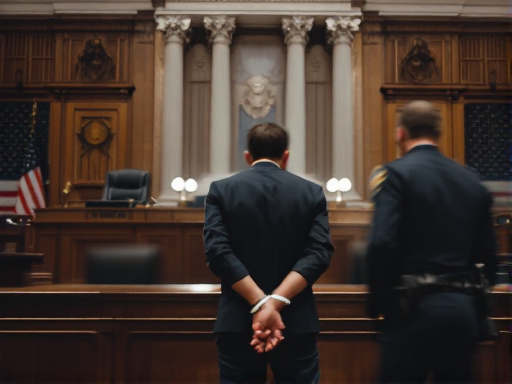
A symbolic courtroom scene bathed in cool, dramatic light, balancing scales of justice on one side and a stylized executive seal on the other. In the center, a judge’s gavel poised above a legal brief marked “Due Process,” with highlighted notes and a remand stamp. In the background, a subdued map of the United States fades into a distant border checkpoint and a passport control desk, representing immigration enforcement. Subtle file folders labeled “Registration Requirements” and “Judicial Limits” sit on a polished wooden table, while a distant silhouette of a traveler with a small bag suggests a contested return. The tone is serious, restrained, and documentary, with
Summary
A cluster of rulings and orders highlights tension between judicial oversight and executive authority in U.S. immigration policy. The Supreme Court instructed the Trump administration to facilitate the return of Kilmar Armando Abrego Garcia, a Salvadoran migrant wrongly deported despite prior protection, while declining to mandate his physical return and emphasizing limits on judicial directives in foreign affairs. The case underscores concerns about unsubstantiated government claims and due process, drawing criticism from Justice Sotomayor and prompting remand for clarification. In a parallel development, a federal judge allowed the administration to immediately enforce long-standing but rarely used registration requirements for noncitizens without legal status, intensifying debates over civil liberties, enforcement scope, and the potential pathway to broader deportation efforts.
Key Points
- Supreme Court ordered the government to facilitate, but not mandate, Abrego Garcia’s return after a wrongful deportation.
- Justices cited limits on court authority in foreign affairs, sending aspects back to the trial court for clarification.
- Justice Sotomayor criticized the government’s legal basis for arrest and detention as lacking support.
- The administration’s unsubstantiated MS-13 allegation was rejected by a trial judge, highlighting due process concerns.
- A separate ruling allowed immediate enforcement of decades-old noncitizen registration requirements, sparking civil liberties debate.